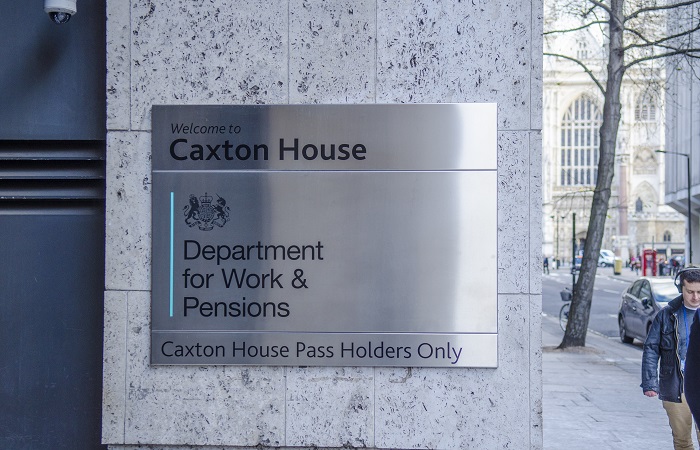
The Department for Work and Pensions (DWP) has launched a consultation into how best to improve The Pensions Regulator’s (TPR) powers and increase protections for defined benefit (DB) pensions scheme members.
The consultation, which closes on 21 August 2018, follows the publication of the government’s white paper, Protecting defined benefit pension schemes, in March 2018. The white paper detailed potential improvements aimed at further safeguarding DB pension schemes and their members; this follow-up consultation explains suggested changes in more detail, and seeks evidence on how best to deliver these proposals.
The consultation is looking to gather views around enhancing TPR’s enforcement powers. This includes enabling TPR to be more proactive in ensuring the needs of a scheme are properly considered when employers make changes which could affect DB pension schemes, allowing TPR to obtain the right information about a scheme and its sponsoring employer when it needs it, and new powers to strengthen existing safeguards which enable TPR to deter and punish wrongdoing.
The consultation additionally explains new clearer funding standards for all pension schemes, as well as detailing new options that help employers, trustees and TPR work together to better manage schemes’ pension promises, such as the introduction of a chair of trustees and a new chairs’ statement.
The DWP is looking for views from pension scheme trustees and managers, pension scheme members and beneficiaries, DB scheme sponsoring employers, industry bodies and professionals and any other interested stakeholders.
A spokesperson at The Pensions Regulator said: “We welcome the package of measures outlined in the consultation which supports the actions we are already taking to protect pension savers by being clearer, quicker and tougher.
“The proposal to enable us to apply a range of sanctions, from administrative penalties to high level fines and criminal charges, for different types of breaches, will provide TPR with a more flexible enforcement framework. It will also help act as a strong deterrent against risky and reckless behaviour which threatens the retirement incomes of [employees].
“These measures, together with greater transparency for trustees and TPR over the potential detrimental impact of corporate transactions on pension schemes, and improvements to our anti-avoidance powers, are a major step forward in the protection of members.
“We will continue to work closely with the DWP to ensure the new powers work in practice and, in conjunction with our existing powers, are effective and proportionate.”
Alistair Russell-Smith, head of corporate DB at Hymans Robertson, added: “It is vital that stronger powers for The Pensions Regulator are not held up as a cure all for the industry. Some of the changes proposed may be easy to implement, such as stronger rules and powers, but we have to be careful this doesn’t give false comfort that it’s ‘job done’. Real success hinges on the softer things, such as behaviours, confidence and ultimately the appetite for TPR to act. These will almost certainly prove harder to change but we cannot risk diverting focus away from the issues before there is sustainable change in behaviours.
“We have long been of the view that TPR already has the necessary powers to hold sponsoring employers to account over the health of their pension scheme and to ensure that members are always prioritised before shareholders. However, we now need to see evidence that it is willing to put those powers into practice. A tougher code of practice as a result of this consultation will help, but we shouldn’t forget that TPR has existing strong powers, and make them easier for it to access and execute. The work of toughening up TPR has already begun. Assertive intervention, directive funding guidance and recent prosecutions have shown that it is willing to pursue failing employers.
“The government also needs to reflect on TPR’s irreconcilable objectives to promote sustainable economic growth and protect pension schemes and the [Pension Protection Fund]. Carillion, BHS and Tata Steel have swung the legislative pendulum heavily towards protecting members. However, any sluggish economic performance in the future would swing this pendulum back to protecting business growth and tax revenues. Both the industry and regulators need consistency across economic cycles, especially when dealing with multi-decade pension issues.
“Frankly, it’s simply impossible to say if current powers are sufficient, because they just haven’t been used enough. There’s no point in having sharper teeth if you’re reluctant to bite.”
Kate Smith, head of pensions at Aegon, said: “We welcome [this] consultation, which looks to strengthen The Pension Regulator’s powers and enable it to intervene much earlier to protect members’ pensions. In recent years, we’ve seen a number of high profile cases, including the now notorious BHS pension scheme failure, where the TPR was either powerless to act, or acted too late, causing a lot of heartache for members.
“The DWP is proposing that in future TPR will have to be notified of certain planned transactions or events, such as the sale of a business where there is a defined benefit scheme involved which could weaken the sponsoring employer covenant.
“Introducing an ‘early warning system’ alerting TPR to corporate transactions which could weaken the ability of a sponsoring employer to support the pension scheme has to be a good thing and should give members and trustees some comfort. But realistically TPR cannot and should not regulate or prevent corporate transactions.”